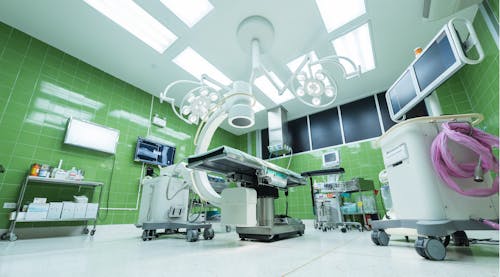
Qatar has a highly developing healthcare system that has been ranked in the world’s top five in terms of quality of care. The system consists of free or subsidized public healthcare, and expats living and working there can apply to access this or choose to be treated privately.
Healthcare in Qatar is overseen by the Ministry of Public Health. Services are provided through two organizations
Qatar is a big spender on healthcare, with expenditure reaching just over $3 billion per annum (2.2% of annual GDP) according to 2014 figures. This makes it one of the biggest healthcare spenders per capita in the Middle East.
The government of Qatar announced plans to make public healthcare universal in 2012, in line with its National Health Strategy 2011-16. Public healthcare funding comes from government subsidies. The government scrapped a move to compulsory health insurance for Qatari nationals in 2015. However, there are plans for a replacement insurance scheme which may also include expat residents.
Expats can access state healthcare services at a subsidized rate by purchasing the HMC health card, which currently costs QR100 for foreign residents (around $27). Many expat residents choose to take out private health insurance to access private services.
Qatar has made developing a world class public health system one of its key goals through its National Vision 2030 initiative. In 2012, the country announced its plans to introduce a universal health care system. The universal health care program has five stages, to be fully implemented by 2015.
The public healthcare system operates through the state-run Hamad Medical Corporation (HMC), which directs Qatar's public medical facilities. Qatari nationals, or those with Qatari residency status, are provided with heavily subsidised and extensive public healthcare at HMC clinics or hospitals.
------------------------------------------------------------
Translation in German

Katar verfügt über ein sich hoch entwickelndes Gesundheitssystem, das in Bezug auf die Qualität der Versorgung zu den Top 5 der Welt gehört. Das System besteht aus einer kostenlosen oder subventionierten öffentlichen Gesundheitsversorgung, und Expats, die dort leben und arbeiten, können einen Antrag auf Zugang dazu stellen oder sich für eine private Behandlung entscheiden.
Das Gesundheitswesen in Katar wird vom Gesundheitsministerium überwacht. Die Dienstleistungen werden von zwei Organisationen erbracht:
Katar ist ein großer Geldgeber für das Gesundheitswesen. Laut Angaben von 2014 belaufen sich die Ausgaben auf etwas mehr als 3 Mrd. USD pro Jahr (2,2% des jährlichen BIP). Damit ist es einer der größten Gesundheitsausgaben pro Kopf im Nahen Osten.
Die Regierung von Katar kündigte Pläne an, die öffentliche Gesundheitsversorgung im Jahr 2012 im Einklang mit ihrer Nationalen Gesundheitsstrategie 2011-16 universell zu gestalten. Die Finanzierung des öffentlichen Gesundheitswesens erfolgt aus staatlichen Subventionen. Die Regierung hat 2015 einen Schritt zur obligatorischen Krankenversicherung für katarische Staatsangehörige gestrichen. Es gibt jedoch Pläne für ein Ersatzversicherungssystem, das auch Expat-Bewohner umfassen kann.
Expats können zu einem subventionierten Preis auf staatliche Gesundheitsdienste zugreifen, indem sie die HMC-Gesundheitskarte kaufen, die für ausländische Einwohner derzeit QR100 kostet (ca. 27 USD). Viele Expat-Bewohner schließen eine private Krankenversicherung ab, um Zugang zu privaten Dienstleistungen zu erhalten.
Katar hat die Entwicklung eines erstklassigen öffentlichen Gesundheitssystems durch seine Initiative National Vision 2030 zu einem seiner Hauptziele gemacht. 2012 kündigte das Land seine Pläne zur Einführung eines universellen Gesundheitssystems an. Das universelle Gesundheitsprogramm besteht aus fünf Phasen, die bis 2015 vollständig umgesetzt werden sollen.
Das öffentliche Gesundheitssystem wird von der staatlichen Hamad Medical Corporation (HMC) betrieben, die die öffentlichen medizinischen Einrichtungen in Katar leitet. Katarische Staatsangehörige oder Personen mit katarischem Aufenthaltsstatus erhalten in HMC-Kliniken oder Krankenhäusern eine stark subventionierte und umfassende öffentliche Gesundheitsversorgung.







